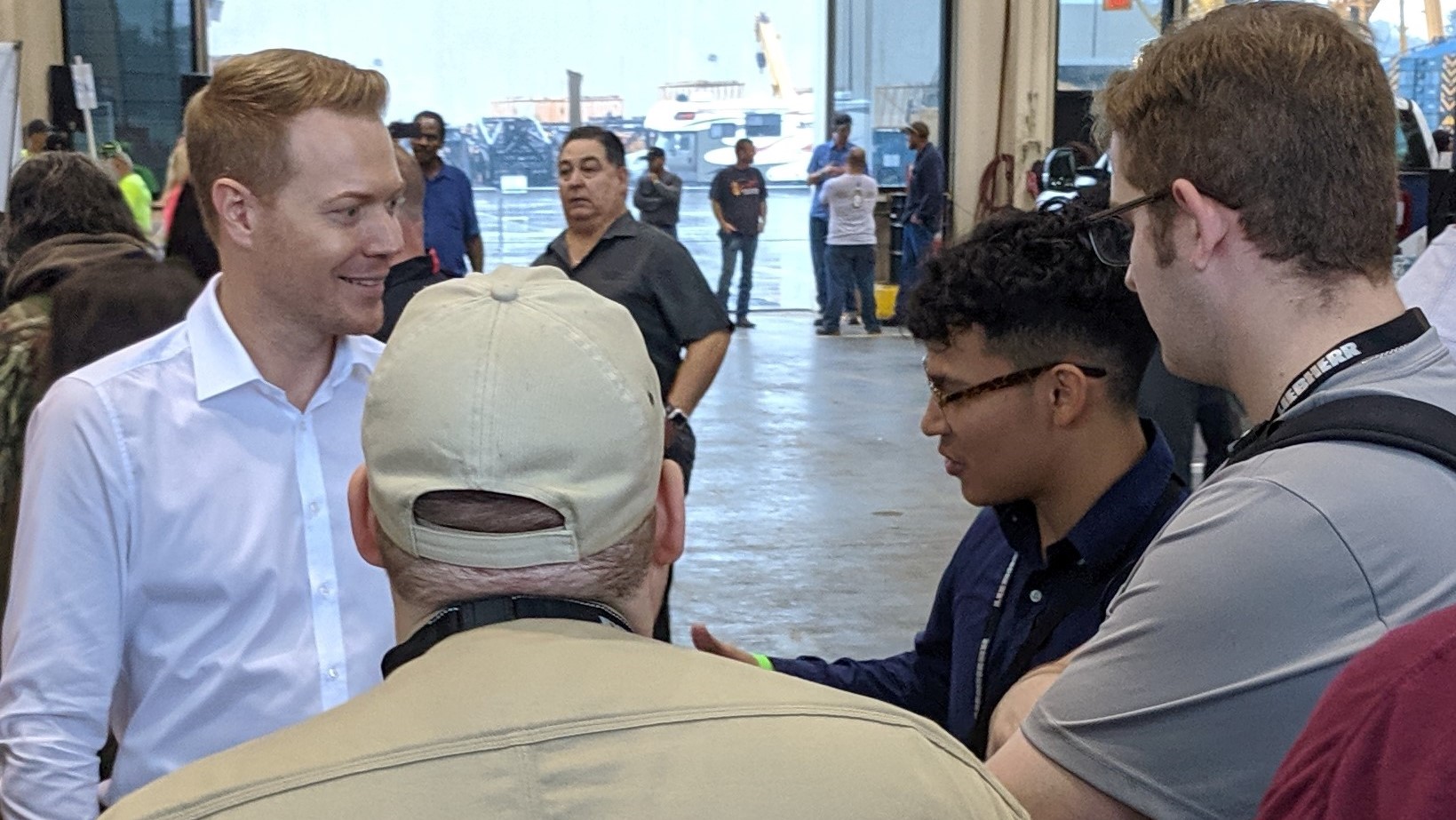Interactive Expos Give Students Real World View of Career Paths, Help Break Down Stereotypes
Published Nov 15, 2019 by Susan Moore
Elba Rivera wanted to attend a recent Lift & Move USA interactive career expo so she could learn how cranes work.
The Spring High School junior with an interest in engineering knew how to make models of cranes, but not how to use them.
“They have a lot more technology in them than I thought there would have been needed,” she said after a morning of rotating through the expo’s stations featuring equipment, demonstrations, and industry professionals. She also learned that cranes cost a lot more and require more safety measures to operate than she’d thought.
Rivera was one of about 500 high school and post-secondary students from across the region who spent a day this November at Lift & Move’s expo. Hosted by Liebherr USA’s Houston sales, service, and repair facility, the expo provided an opportunity for young people to learn about specialized transportation, crane, rigging, and machinery-moving operation equipment and careers.
Lift & Move USA is organized by the Specialized Carriers & Rigging Association, the SC&R Foundation, the National Commission for the Certification of Crane Operators, and the publisher KHL. The group holds interactive learning events across the country, but this was its first in Houston.
Organizations and companies that put together or participate in hands-on career expos like Lift & Move, the 2019 Construction Career Exposition, and C3’s WECan event can be instrumental in helping students make informed decisions about career pathways and education after high school. Interactive expos allow students to ask questions of industry professionals, try out equipment or use simulators, participate in mock job interviews, and learn about the credentials and skills needed to enter an industry. Such expos can be powerful opportunities to broaden a young person’s knowledge or understanding about an industry or career type, especially for roles that are in high demand but have little visibility. And, these expos can change perceptions of and combat stereotypes around an industry.
C3’s inaugural WECan event, organized in partnership with the National Association of Women in Construction (NAWIC) and Aldine Independent School District, was developed specifically to introduce young women to careers in construction and companies that support the industry with tools or safety equipment. According to the U.S. Census Bureau, in 2017, nearly 30,000 women worked in the construction industry in Greater Houston, accounting for about 9 percent of the industry.
Construction is a traditionally male-dominated industry with an aging workforce looking to attract a new younger and more diverse generation of workers. WECan demonstrated that women can participate – and thrive – in construction careers from sales to management to labor. About 1,000 female Aldine students attended, met with, and learned from construction leaders.
For Kyus Ivan Gordon, a senior at Pasadena Independent School District’s Dr. Kirk Lewis Career & Technical High School, Lift & Move offered a chance to meet industry professionals and learn about job opportunities, many of which require specialized skills and industry credentials but not a bachelor’s degree. That point wasn’t lost on Gordon.
“I learned you don’t have to have a college degree to run the cranes. They will train you here to be a certified operator,” he said, adding that he plans to join the military and then work in a construction or mechanical engineering field.
Gordon said he would tell his friends who didn’t attend Lift & Move one thing: “They missed out.”
Learn more about UpSkill Houston and workforce development efforts in the Houston region.
 The Houston Report
The Houston Report




















